Making Orkney 'stoatally' free of alien predators
- Published
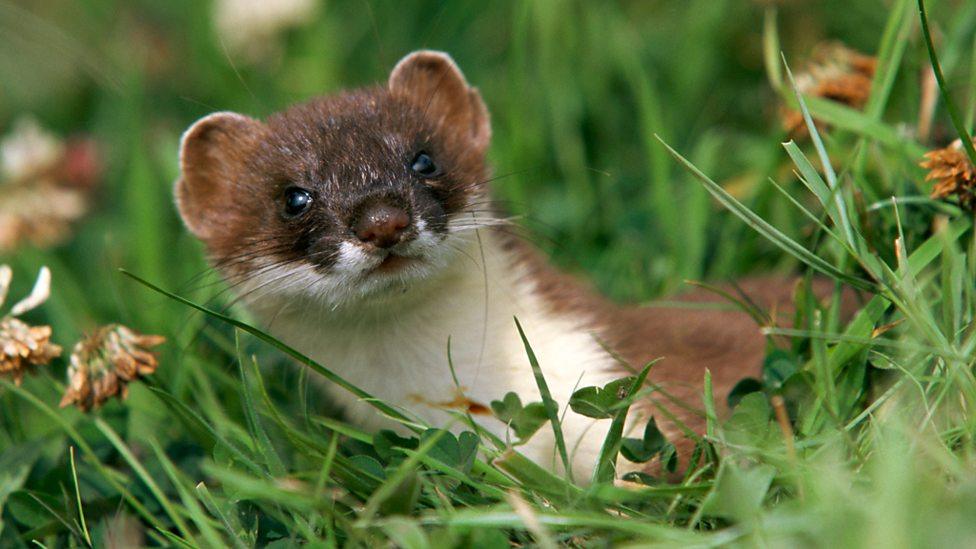
Stoats have been a problem in Orkney since around 2010
Scientists in New Zealand say they hope to have a workable way of using gene editing to control pests such as stoats within the next eight years.
The mammals, which were introduced by the Victorians to control rabbits, have a devastating impact on native birds - like the kiwi.
There is a similar problem in Orkney, where stoats are not a native species, but were first spotted on the island back in 2010.
The technique would alter the stoats' genes and make it impossible for them to reproduce.

Professor Neil Gemmell from the University of Otago says gene editing is potentially a solution to the stoat problem
Professor Neil Gemmell, from the University of Otago in New Zealand's South Island, told BBC Radio Orkney: "In New Zealand, and I'm sure the same is true in Orkney, our native birds didn't grow up with any mammalian predators. And particularly not stoats.
"And the stoats are an incredibly efficient predator. Literally, where there are stoats, New Zealand native birds do not prosper.
"And, in particular, they are really bad news for our native kiwi bird. So, where stoats are present, very few juveniles get to one year of age. In fact, probably, we lose 90% of individuals."
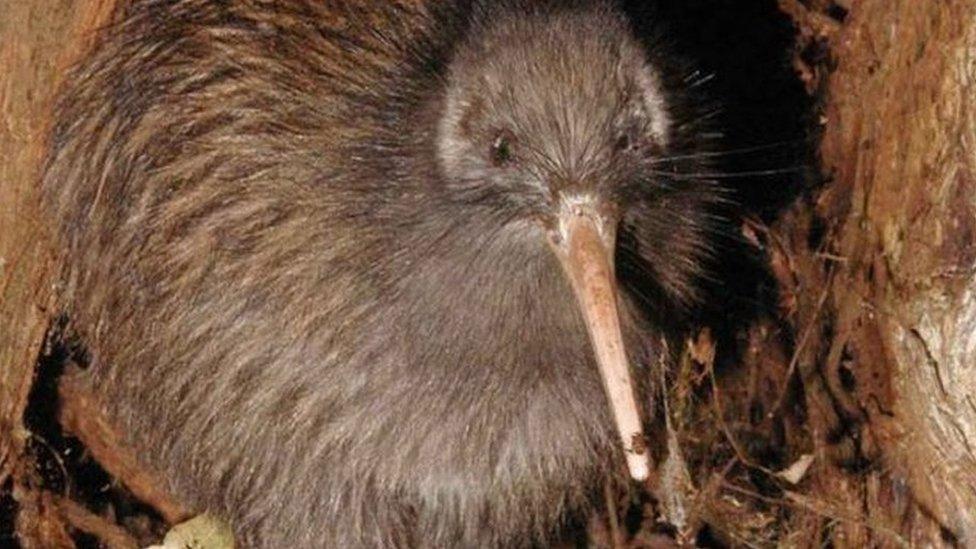
The native kiwi bird is one of the species predated upon by stoats
In New Zealand there has been a huge campaign to trap and poison stoats. And that's sometimes been controversial, because poison is applied - albeit in a targeted fashion - by helicopter.
So the hope is that once the population has been reduced you could then - counter-intuitively - introduce more stoats. But they would be secret agents with genetic modifications.
For example, they may be engineered only to have male offspring and to pass that characteristic on to their progeny.
So, over time, it would be harder and harder for the population to reproduce itself.
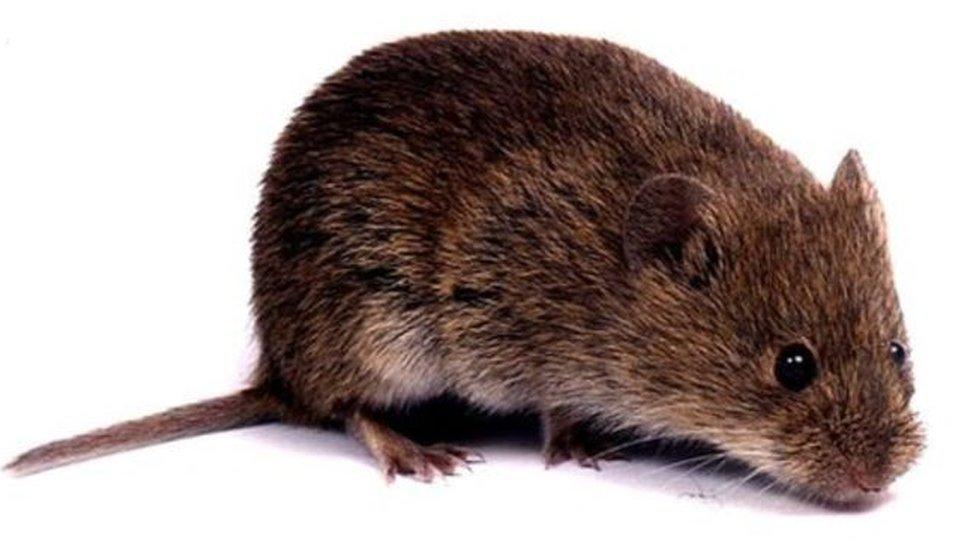
The Orkney vole and several species of birds are said to be threatened by stoats
Releasing genetically-engineered creatures that can't breed into the landscape - that sounds familiar. Ah, yes. It's the plot of the Jurassic Park movies. And if they've taught us anything, it is that life will find a way.
I was worried Prof Gemmell might laugh at the idea. But, in fact, he took it seriously.
"Nature will find a way", he agreed. "And the way is normally mutation. And that was exactly what happened in Jurassic Park."
But, he said, scientists can do a couple of things to counter-act that.
"You can put in back-up systems to make sure that the gene drive keeps working. And then, you have to go out and monitor things. You can't just walk away from it. You have to keep an eye on what's happening in the population.

Stoats have been sighted across Orkney mainland this year
And he says there may be other factors that make such a scheme more difficult than expected.
"For example, what happens if female stoats don't find the male stoats that carry the damaged genes attractive, and don't want to mate with them?
"That would be a problem. And will these stoats, that have been bred in the laboratory, survive in the wild?
"So there's a fair bit we need to figure out first before we get to a point where we actually have genetically-modified stoats to deploy either in New Zealand or in Orkney," said Prof Gemmell.
- Published7 April 2016
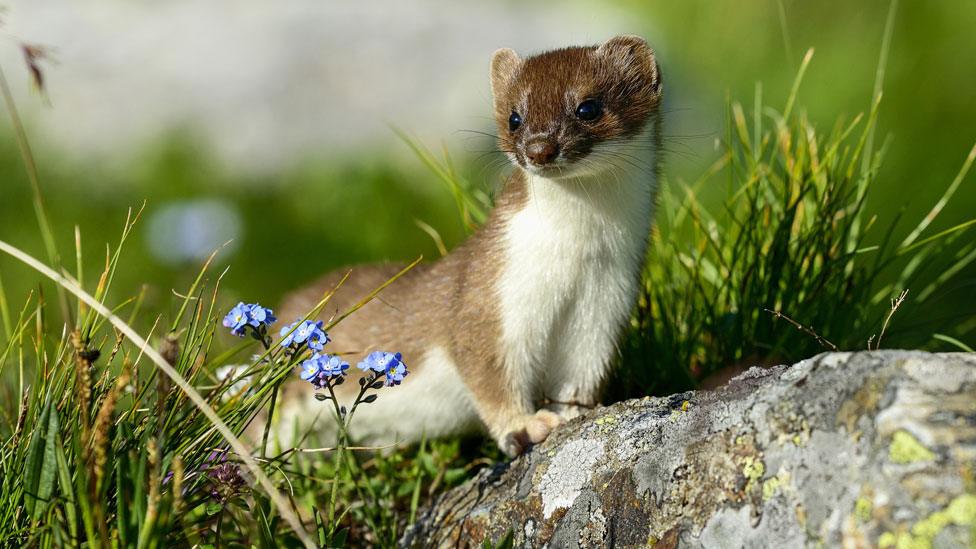
- Published2 November 2015
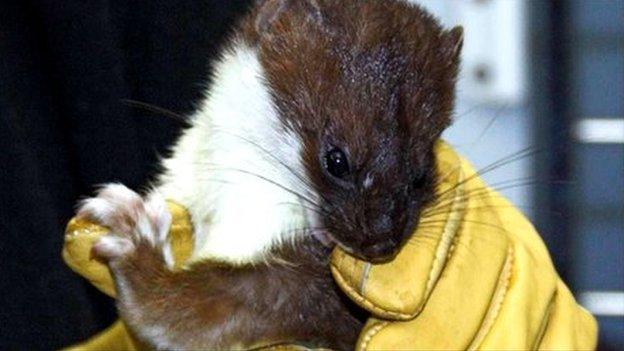
- Published4 June 2015
